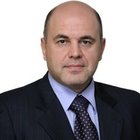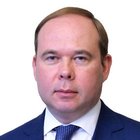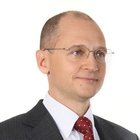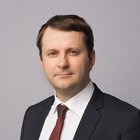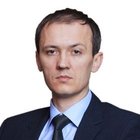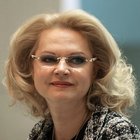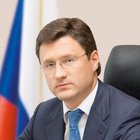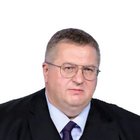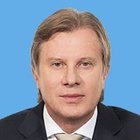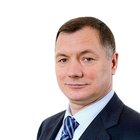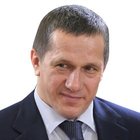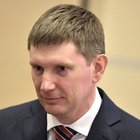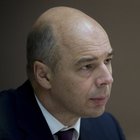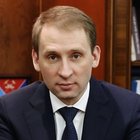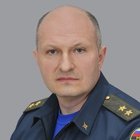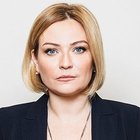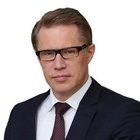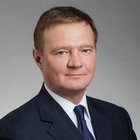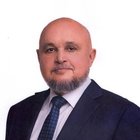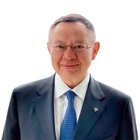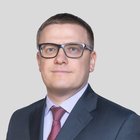The meeting was attended by Prime Minister Mikhail Mishustin, Chief of Staff of the Presidential Executive Office Anton Vaino, First Deputy Prime Minister Denis Manturov, First Deputy Chief of Staff of the Presidential Executive Office Sergei Kiriyenko, Deputy Chief of Staff of the Presidential Executive Office Maxim Oreshkin, Deputy Prime Minister – Chief of the Government Staff Dmitry Grigorenko, deputy prime ministers Tatyana Golikova, Alexander Novak, Alexei Overchuk, Dmitry Patrushev, Vitaly Savelyev, Marat Khusnullin and Dmitry Chernyshenko, Deputy Prime Minister – Presidential Plenipotentiary Envoy to the Far Eastern Federal District Yury Trutnev, Minister of Economic Development Maxim Reshetnikov, and Finance Minister Anton Siluanov.
Minister of Natural Resources and Environment Alexander Kozlov, Minister for Civil Defence, Emergencies and Natural Disaster Relief Alexander Kurenkov, Minister of Culture Olga Lyubimova, Minister of Healthcare Mikhail Murashko, Minister of Transport Roman Starovoit, Minister of Energy Sergei Tsivilev, Minister of Construction, Housing and Utilities Irek Fayzullin, Head of the Federal Service for Supervision of Natural Resources Svetlana Radionova, and Governor of the Chelyabinsk Region, Chair of the State Council Commission on the Economy and Finance Alexei Teksler were also invited to take part in the meeting.
Deputy Prime Minister Alexander Novak delivered a report on the main agenda item, the launch of new national projects.
Several current issues were reviewed at the beginning of the meeting.
* * *
President of Russia Vladimir Putin: Good afternoon, colleagues,
Today, we will have our first meeting after the long holidays. As agreed, many of our colleagues stayed in touch during the holidays, so the work never stopped.
I suggest discussing the most topical issues today. The main issue on our agenda today has to do with national projects. I would like Mr Novak, followed by Mr Teksler, to report on the launch of new national projects.
But at the outset we will talk about current issues. First of all, I would like Mr Fayzullin to tell us about the operation of our housing and utility services during the New Year holidays.
Mr Fayzullin, you have the floor.
(The Minister reported that the long holidays went without major heat supply disruptions thanks to the coordinated efforts of the utility companies and managing organisations in the regions, Rostekhnadzor, and state housing oversight bodies. He also listed the support measures used to renovate the housing and utilities sector. Last year alone, 12 programmes were implemented, and the regions upgraded more than 3,000 kilometres of utility lines. Over the year, the quality of public utilities improved for 2.5 million. The new federal project, Modernisation of Utilities Infrastructure, which is part of the Infrastructure for Life national project, will make it possible to improve the quality of services for 20 million people around the country by 2030 and annually upgrade 2.5 percent of the country’s grids.
Irek Fayzullin reported that the Government annually provided system-wide support to the regions during the heating season. In compliance with the President’s instructions, the Government keeps under control the situation in the reunited regions, as well as in the Kursk, Bryansk and Belgorod regions. The sponsor regions have put together 192 emergency recovery crews comprising 1,148 specialists and almost 400 pieces of equipment in the Donetsk and Lugansk people’s republics, as well as the Kherson and Zaporozhye regions.
According to the Minister, a systemic approach to the heating season has been put in place. There are sufficient volumes of fuel reserves, equipment and personnel on the ground are in a standby mode. The situation is being monitored on a daily basis in cooperation with regional authorities.
Answering the President’s questions, Irek Fayzullin spoke about upgrading drinking water supply facilities. Vladimir Putin asked him to keep these issues under special control, as drinking water is a particularly acute issue in some regions.
Further, at the request of the President, Minister of Energy Sergei Tsivilev reported on the fuel and energy complex’ operations during the holidays. According to the Minister, 84 technological malfunctions – almost half of last year’s number – took place during the holidays and briefly affected end consumers. Mass-scale power supply restrictions were mainly caused by bad weather and affected about 50,000 consumers in five regions. It took on average about six hours to restore power. As many as 23,000 emergency recovery crews numbering over 150,000 people, and about 60,000 pieces of special equipment were on high alert during the holidays. Additional forces and means were tasked with restoring damaged energy facilities in the new and border regions. The Minister expressed special gratitude to the industry employees who risked their lives in order to restore power supply to people and social facilities in those regions.
The Minister emphasised that the energy sector will do everything necessary to ensure reliable power supply and pass the heating season successfully).
Vladimir Putin: For my part, I would also like to thank the employees of all utility services who worked during the holidays to promptly ensure emergency maintenance.
As we all know, the employees of these agencies, ministries, departments, and local authorities keep working while the rest of the country goes on vacation during holiday season. Their work often involves serious challenges, and yet, the job is always done. Thank you very much. I hope that you will continue to promptly respond to accidents, whether on holidays or working days.
(Further on, at the President’s request, Transport Minister Roman Starovoit reported on the transport sector’s performance during the New Year holidays. According to him, from December 29 to January 8, Russian airlines carried over three million passengers, including more than 2.2 million within Russia. The seat occupancy rate on those flights was 85 percent. Moreover, as many as 56 airplanes of Russian airlines were simultaneously in flight on New Year’s Eve and in the early hours of January 1. Those airplanes were flown by 112 pilots, while more than 200 flight attendants took care of the passengers’ safety and comfort. About 1,200 air traffic controllers worked during the New Year’s Eve shift.
The Minister also said that more than 50 new air routes had been added to the Russian carriers’ winter schedule. In response to the President’s instruction, the government has been negotiating with the airlines a 50 percent discount on air fares for families with children. The 23 largest Russian airlines, which carry more than 95 percent of all passengers, began to offer a 50 percent discount for children under 12 years of age on all domestic flights within all existing fares, with the exception of business class, from January 1, 2025.
As many as 128,000 passengers celebrated the New Year on trains. On New Year’s Eve, 547 long-distance trains were en route on the Russian railway network, which means that more than 80,000 railway personnel had to work on New Year’s Eve and during the night to make sure everyone reached their holiday destination. In the period from December 27 to January 12, Russian Railways will carry over seven million passengers, which is 2.6 percent more than last year. During the holidays, 825 additional long-distance trains were scheduled.
During the New Year holidays, 143,000 passengers were transported to Crimea, which is more than two percent above the previous year’s level. From December 29 to January 8, almost 100,000 vehicles crossed the Crimean bridge in both directions, a 35 percent increase year-on-year.
Roman Starovoit mentioned 19 most popular tourist destinations for interregional bus routes, including the Krasnodar Territory, Crimea, the Golden Ring, the North Caucasus, Kazan, Karelia, Altai and many others.
The Minister stressed that the transport sector is now past the New Year’s peak demand, and preparations have begun for the next seasonal peak, the summer tourist season. Rolling stock is being prepared, new routes are being developed, and new passenger infrastructure facilities are being built.)
To be continued.



